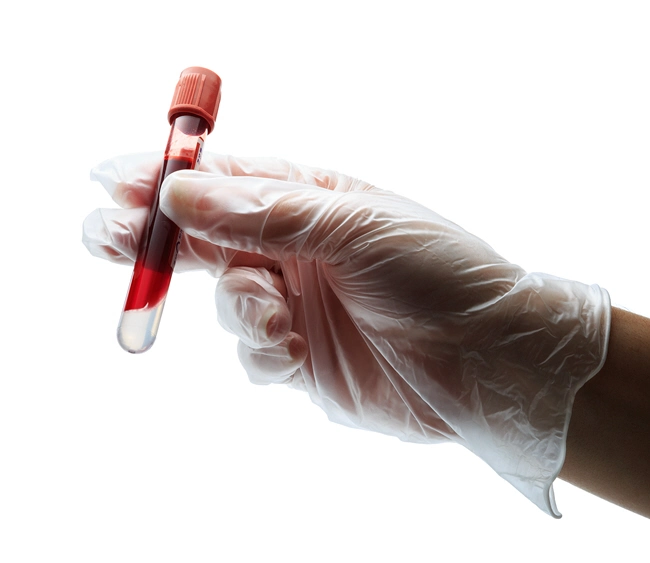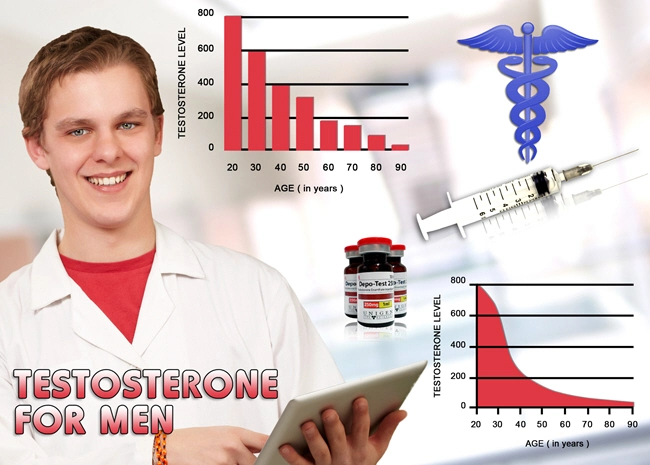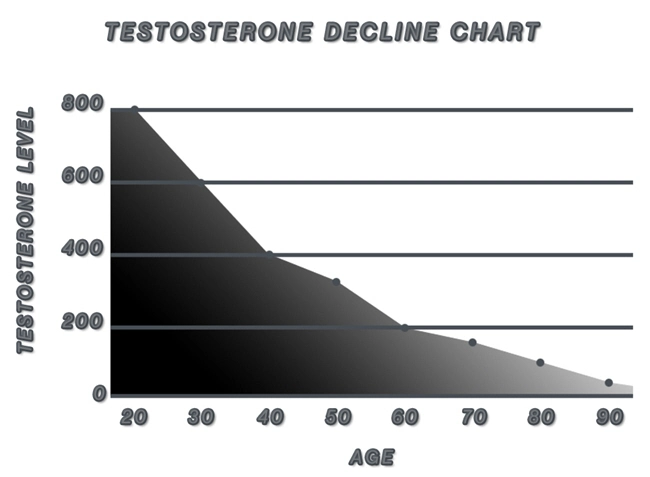
Introduction
Testosterone propionate, a synthetic form of the male hormone testosterone, is commonly used for hormone replacement therapy and to enhance physical performance. While its benefits are well-documented, the effects on the cardiovascular system in American men warrant a closer examination. This article delves into the potential cardiovascular implications of testosterone propionate use, providing essential insights for healthcare professionals and patients alike.
Cardiovascular Benefits of Testosterone Propionate
Testosterone propionate has been associated with several cardiovascular benefits. Studies have shown that it can improve endothelial function, which is crucial for maintaining healthy blood vessels. Enhanced endothelial function can lead to better blood flow and reduced risk of atherosclerosis. Additionally, testosterone propionate may help in reducing visceral fat, a known risk factor for cardiovascular diseases. By promoting lean muscle mass and reducing fat, it contributes to a healthier cardiovascular profile.
Potential Risks and Side Effects
Despite its benefits, testosterone propionate is not without risks. One of the primary concerns is its potential to increase hematocrit levels, leading to a higher risk of blood clots. Elevated hematocrit can thicken the blood, increasing the likelihood of thrombosis, which can have serious cardiovascular consequences. Furthermore, some studies suggest that testosterone supplementation might adversely affect lipid profiles by increasing LDL (bad) cholesterol and decreasing HDL (good) cholesterol, although findings are inconsistent.
Impact on Blood Pressure
Testosterone propionate's effect on blood pressure is another critical area of concern. While some research indicates that it may help in reducing blood pressure by improving vascular function, other studies suggest a potential increase in blood pressure, particularly in individuals predisposed to hypertension. This dual effect underscores the importance of monitoring blood pressure closely in patients using testosterone propionate.
Long-term Cardiovascular Health
The long-term impact of testosterone propionate on cardiovascular health remains a subject of ongoing research. Some longitudinal studies have raised concerns about an increased risk of cardiovascular events, such as heart attacks and strokes, particularly in older men or those with pre-existing cardiovascular conditions. However, other research suggests that when used appropriately and under medical supervision, testosterone propionate may not significantly elevate these risks.
Clinical Considerations and Monitoring
Given the potential cardiovascular effects of testosterone propionate, it is crucial for healthcare providers to conduct thorough assessments before initiating therapy. Baseline cardiovascular risk factors, including blood pressure, lipid profiles, and hematocrit levels, should be evaluated. Regular monitoring is essential to detect any adverse changes early and adjust treatment as necessary. Patients should be educated about the signs of cardiovascular issues and encouraged to report any symptoms promptly.
Conclusion
Testosterone propionate can offer significant benefits for American men, particularly in terms of improving endothelial function and reducing visceral fat. However, its use is not without risks, including potential increases in hematocrit, adverse effects on lipid profiles, and impacts on blood pressure. Long-term cardiovascular health remains a critical consideration, necessitating careful monitoring and individualized treatment plans. By understanding these effects, healthcare providers can better manage the use of testosterone propionate, ensuring the safety and well-being of their patients.
Contact Us Today For A Free Consultation
Dear Patient,
Once you have completing the above contact form, for security purposes and confirmation, please confirm your information by calling us.
Please call now: 1-800-380-5339.
Welcoming You To Our Clinic, Professor Tom Henderson.

- Testosterone Propionate: Benefits, Risks, and Hormonal Balance for American Males [Last Updated On: March 17th, 2025] [Originally Added On: March 17th, 2025]
- Testosterone Propionate's Impact on Cognitive Function in American Males: Benefits and Risks [Last Updated On: March 17th, 2025] [Originally Added On: March 17th, 2025]
- Testosterone Propionate: Enhancing Male Fertility in American Men - Benefits and Risks [Last Updated On: March 18th, 2025] [Originally Added On: March 18th, 2025]
- Testosterone Propionate in American Sports: Ethical Issues and Health Risks for Male Athletes [Last Updated On: March 18th, 2025] [Originally Added On: March 18th, 2025]
- Testosterone Propionate's Role in Male Pattern Baldness Among American Men [Last Updated On: March 18th, 2025] [Originally Added On: March 18th, 2025]
- Testosterone Propionate: Enhancing Sleep Quality in American Men [Last Updated On: March 19th, 2025] [Originally Added On: March 19th, 2025]
- Testosterone Propionate's Role in Weight Management for Obese American Males [Last Updated On: March 20th, 2025] [Originally Added On: March 20th, 2025]
- Testosterone Propionate: Benefits, Risks, and Ethical Use in American Men [Last Updated On: March 20th, 2025] [Originally Added On: March 20th, 2025]
- Long-Term Health Risks of Testosterone Propionate Use in American Men [Last Updated On: March 21st, 2025] [Originally Added On: March 21st, 2025]
- Testosterone Propionate's Impact on Immune Function in American Males: A Comprehensive Review [Last Updated On: March 21st, 2025] [Originally Added On: March 21st, 2025]
- Testosterone Propionate: Boosting Energy Levels in American Men [Last Updated On: March 21st, 2025] [Originally Added On: March 21st, 2025]
- Testosterone Propionate: A Promising Therapy for Osteoporosis in American Men [Last Updated On: March 21st, 2025] [Originally Added On: March 21st, 2025]
- Testosterone Propionate: A Promising Treatment for Depression in American Males [Last Updated On: March 22nd, 2025] [Originally Added On: March 22nd, 2025]
- Testosterone Propionate: Benefits, Risks, and Use in American Male Bodybuilding [Last Updated On: March 22nd, 2025] [Originally Added On: March 22nd, 2025]
- Testosterone Propionate: A Promising Treatment for Chronic Pain in American Men [Last Updated On: March 22nd, 2025] [Originally Added On: March 22nd, 2025]
- Testosterone Propionate: Benefits, Risks, and Aesthetic Use in American Males [Last Updated On: March 22nd, 2025] [Originally Added On: March 22nd, 2025]
- Testosterone Propionate: A Promising Treatment for Obesity in American Males [Last Updated On: March 23rd, 2025] [Originally Added On: March 23rd, 2025]
- Testosterone Propionate Use and Diabetes Risk in American Males: A Comprehensive Analysis [Last Updated On: March 23rd, 2025] [Originally Added On: March 23rd, 2025]
- Testosterone Propionate: Psychological Effects and Risks for American Men [Last Updated On: March 23rd, 2025] [Originally Added On: March 23rd, 2025]
- Testosterone Propionate: A Promising Treatment for Chronic Fatigue in American Males [Last Updated On: March 23rd, 2025] [Originally Added On: March 23rd, 2025]
- Testosterone Propionate: Enhancing Muscle, Energy, and Psychological Health in American Men [Last Updated On: March 24th, 2025] [Originally Added On: March 24th, 2025]
- Testosterone Propionate's Cardiovascular Impact on American Men: Benefits, Risks, and Guidelines [Last Updated On: March 24th, 2025] [Originally Added On: March 24th, 2025]
- Testosterone Propionate: Enhancing Libido and Sexual Performance in American Men [Last Updated On: March 24th, 2025] [Originally Added On: March 24th, 2025]
- Testosterone Propionate: Enhancing Muscle Recovery in American Men - Benefits and Risks [Last Updated On: March 24th, 2025] [Originally Added On: March 24th, 2025]
- Testosterone Propionate: Enhancing Recovery and Performance in American Male Athletes [Last Updated On: March 24th, 2025] [Originally Added On: March 24th, 2025]
- Testosterone Propionate: Benefits and Risks in Hormone Replacement Therapy for American Males [Last Updated On: March 25th, 2025] [Originally Added On: March 25th, 2025]
- Testosterone Propionate: A Promising Treatment for Anemia in American Men [Last Updated On: March 25th, 2025] [Originally Added On: March 25th, 2025]
- Testosterone Propionate: Benefits, Risks, and Legal Issues for American Men [Last Updated On: March 25th, 2025] [Originally Added On: March 25th, 2025]
- Testosterone Propionate Use and Liver Health Risks in American Males [Last Updated On: March 25th, 2025] [Originally Added On: March 25th, 2025]
- Testosterone Propionate's Impact on Bone Health in American Men: A Comprehensive Analysis [Last Updated On: March 25th, 2025] [Originally Added On: March 25th, 2025]
- Testosterone Propionate's Impact on Blood Pressure in American Men: A Comprehensive Analysis [Last Updated On: March 25th, 2025] [Originally Added On: March 25th, 2025]
- Testosterone Propionate: Enhancing Sexual Function in American Men [Last Updated On: March 26th, 2025] [Originally Added On: March 26th, 2025]
- Testosterone Propionate: Enhancing Joint Health in American Men [Last Updated On: March 26th, 2025] [Originally Added On: March 26th, 2025]
- Testosterone Propionate: Enhancing Sexual Health in American Men - Benefits and Risks [Last Updated On: March 26th, 2025] [Originally Added On: March 26th, 2025]
- Testosterone Propionate: Enhancing Endurance in American Men - Benefits and Risks [Last Updated On: March 26th, 2025] [Originally Added On: March 26th, 2025]
- Testosterone Propionate's Impact on Immune System in American Men: Risks and Benefits [Last Updated On: March 26th, 2025] [Originally Added On: March 26th, 2025]
- Testosterone Propionate: A Promising Treatment for Muscle Wasting in American Males [Last Updated On: March 26th, 2025] [Originally Added On: March 26th, 2025]
- Testosterone Propionate: Benefits, Risks, and Legalities for American Weightlifters [Last Updated On: March 26th, 2025] [Originally Added On: March 26th, 2025]
- Testosterone Propionate: A Promising Stress Management Solution for American Men [Last Updated On: March 26th, 2025] [Originally Added On: March 26th, 2025]
- Testosterone Propionate's Impact on Cholesterol Levels in American Men: Cardiovascular Risks [Last Updated On: March 26th, 2025] [Originally Added On: March 26th, 2025]
- Testosterone Propionate in Anti-Aging: Benefits, Risks, and Clinical Insights for American Men [Last Updated On: March 26th, 2025] [Originally Added On: March 26th, 2025]
- Testosterone Propionate: Boosting Energy in American Men with Low Testosterone [Last Updated On: March 27th, 2025] [Originally Added On: March 27th, 2025]
- Testosterone Propionate: Managing Hormonal Imbalances in American Men [Last Updated On: March 27th, 2025] [Originally Added On: March 27th, 2025]
- Testosterone Propionate's Impact on Mood Swings in American Men: Benefits and Risks [Last Updated On: March 27th, 2025] [Originally Added On: March 27th, 2025]
- Testosterone Propionate: A Promising Treatment for Low Sperm Count in American Males [Last Updated On: March 27th, 2025] [Originally Added On: March 27th, 2025]
- Testosterone Propionate: Enhancing Strength and Performance in American Men [Last Updated On: March 28th, 2025] [Originally Added On: March 28th, 2025]
- Testosterone Propionate: Uses, Benefits, and Risks in Male Hormone Therapy [Last Updated On: March 29th, 2025] [Originally Added On: March 29th, 2025]
- Testosterone Propionate: Uses, Benefits, and Risks for American Men's Health and Fitness [Last Updated On: March 29th, 2025] [Originally Added On: March 29th, 2025]
- Testosterone Propionate: Benefits, Dosage, and Risks for American Men's Muscle Building [Last Updated On: March 30th, 2025] [Originally Added On: March 30th, 2025]
- Testosterone Propionate: Enhancing Mental Health in American Men - Benefits and Risks [Last Updated On: March 30th, 2025] [Originally Added On: March 30th, 2025]
- Testosterone Propionate: Enhancing Sexual Health and Performance in American Men [Last Updated On: March 30th, 2025] [Originally Added On: March 30th, 2025]
- Testosterone Propionate: Enhancing Hormonal Health in American Men [Last Updated On: March 31st, 2025] [Originally Added On: March 31st, 2025]
- Testosterone Propionate: Enhancing Bone Density in American Men [Last Updated On: April 2nd, 2025] [Originally Added On: April 2nd, 2025]
- Testosterone Propionate's Impact on Emotional Health in American Men [Last Updated On: April 2nd, 2025] [Originally Added On: April 2nd, 2025]
- Testosterone Propionate in Sports: Benefits, Risks, and Ethical Dilemmas for American Athletes [Last Updated On: April 4th, 2025] [Originally Added On: April 4th, 2025]
- Testosterone Propionate: Enhancing Strength and Risks for American Men [Last Updated On: April 5th, 2025] [Originally Added On: April 5th, 2025]
- Testosterone Propionate: A Potential Treatment for Fatigue in American Males [Last Updated On: April 5th, 2025] [Originally Added On: April 5th, 2025]
- Testosterone Propionate: Benefits, Risks, and Uses in American Men's Health and Fitness [Last Updated On: April 6th, 2025] [Originally Added On: April 6th, 2025]
- Testosterone Propionate: A Fast-Acting Solution for Muscle Loss in American Males [Last Updated On: April 7th, 2025] [Originally Added On: April 7th, 2025]
- Testosterone Propionate: Enhancing Sexual Desire and Function in American Men [Last Updated On: April 8th, 2025] [Originally Added On: April 8th, 2025]
- Testosterone Propionate: Enhancing Strength Training in American Men - Benefits and Risks [Last Updated On: April 8th, 2025] [Originally Added On: April 8th, 2025]
- Testosterone Propionate's Impact on Cardiovascular Health in American Men: Risks and Mitigation [Last Updated On: April 10th, 2025] [Originally Added On: April 10th, 2025]
- Testosterone Propionate: Psychological Impacts and Benefits for American Men [Last Updated On: April 10th, 2025] [Originally Added On: April 10th, 2025]
- Testosterone Propionate: Enhancing American Men's Health Through Hormone Replacement Therapy [Last Updated On: April 11th, 2025] [Originally Added On: April 11th, 2025]
- Testosterone Propionate: Benefits, Administration, and Considerations for American Men's HRT [Last Updated On: April 12th, 2025] [Originally Added On: April 12th, 2025]
- Testosterone Propionate: Effects, Risks, and Reproductive Health Impact in American Men [Last Updated On: April 13th, 2025] [Originally Added On: April 13th, 2025]
- Testosterone Propionate: Enhancing Sports Performance and Associated Risks for American Athletes [Last Updated On: April 14th, 2025] [Originally Added On: April 14th, 2025]
- Testosterone Propionate: Enhancing Mood and Cognition in American Men [Last Updated On: April 15th, 2025] [Originally Added On: April 15th, 2025]
- Testosterone Propionate: A Promising Therapy for Sarcopenia in Aging American Males [Last Updated On: April 15th, 2025] [Originally Added On: April 15th, 2025]
- Testosterone Propionate: Benefits, Risks, and Ethical Use in Men's Health [Last Updated On: April 16th, 2025] [Originally Added On: April 16th, 2025]
- Testosterone Propionate: Enhancing Bone and Joint Health in Aging American Men [Last Updated On: April 16th, 2025] [Originally Added On: April 16th, 2025]
- Testosterone Propionate: Cardiovascular Benefits and Risks in American Men [Last Updated On: April 18th, 2025] [Originally Added On: April 18th, 2025]
- Testosterone Propionate: Enhancing Performance and Risks for American Men [Last Updated On: April 18th, 2025] [Originally Added On: April 18th, 2025]
- Testosterone Propionate: A Promising Treatment for Lethargy in American Males [Last Updated On: April 18th, 2025] [Originally Added On: April 18th, 2025]
- Testosterone Propionate in Men's Health: Benefits, Risks, and Administration in the US [Last Updated On: April 19th, 2025] [Originally Added On: April 19th, 2025]
- Testosterone Propionate: Enhancing Sexual Vitality and Risks in American Men [Last Updated On: April 19th, 2025] [Originally Added On: April 19th, 2025]
- Testosterone Propionate: Enhancing Emotional Well-being in American Men [Last Updated On: April 20th, 2025] [Originally Added On: April 20th, 2025]









